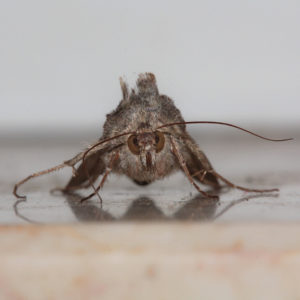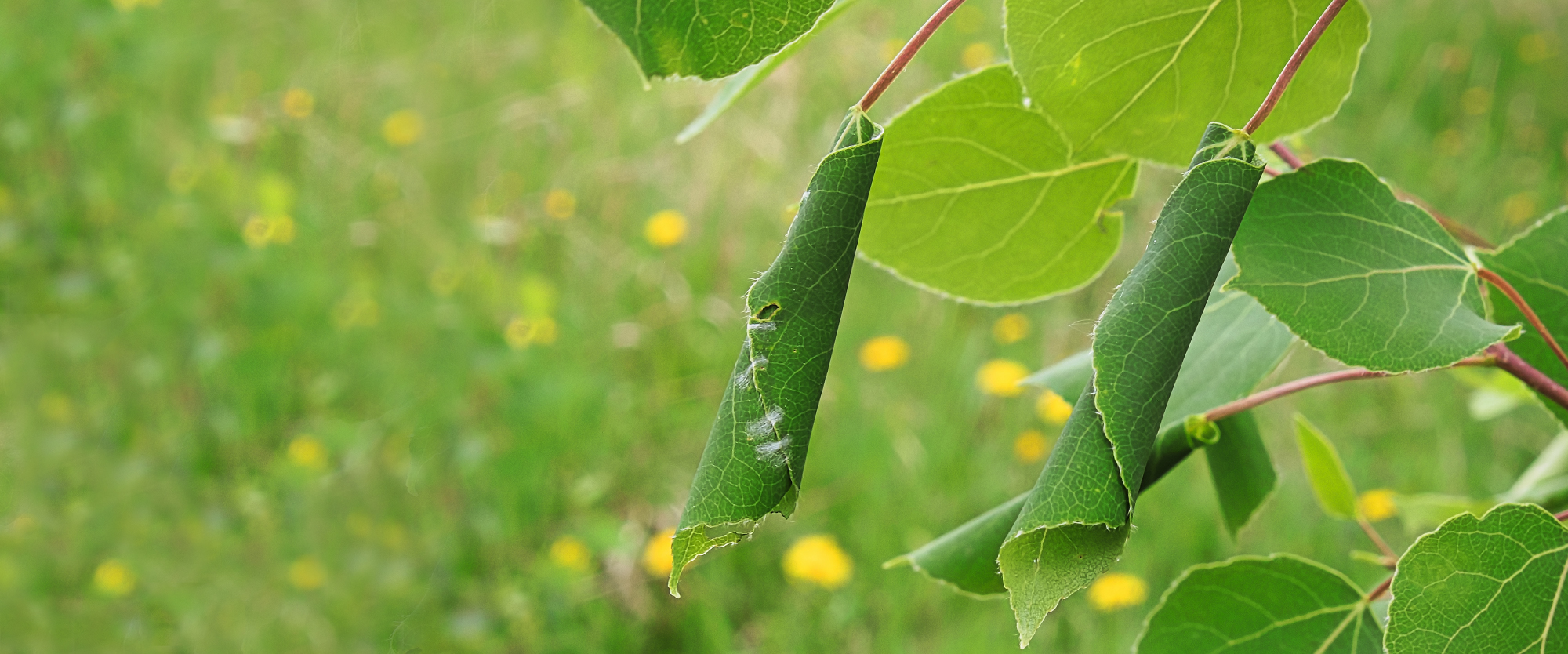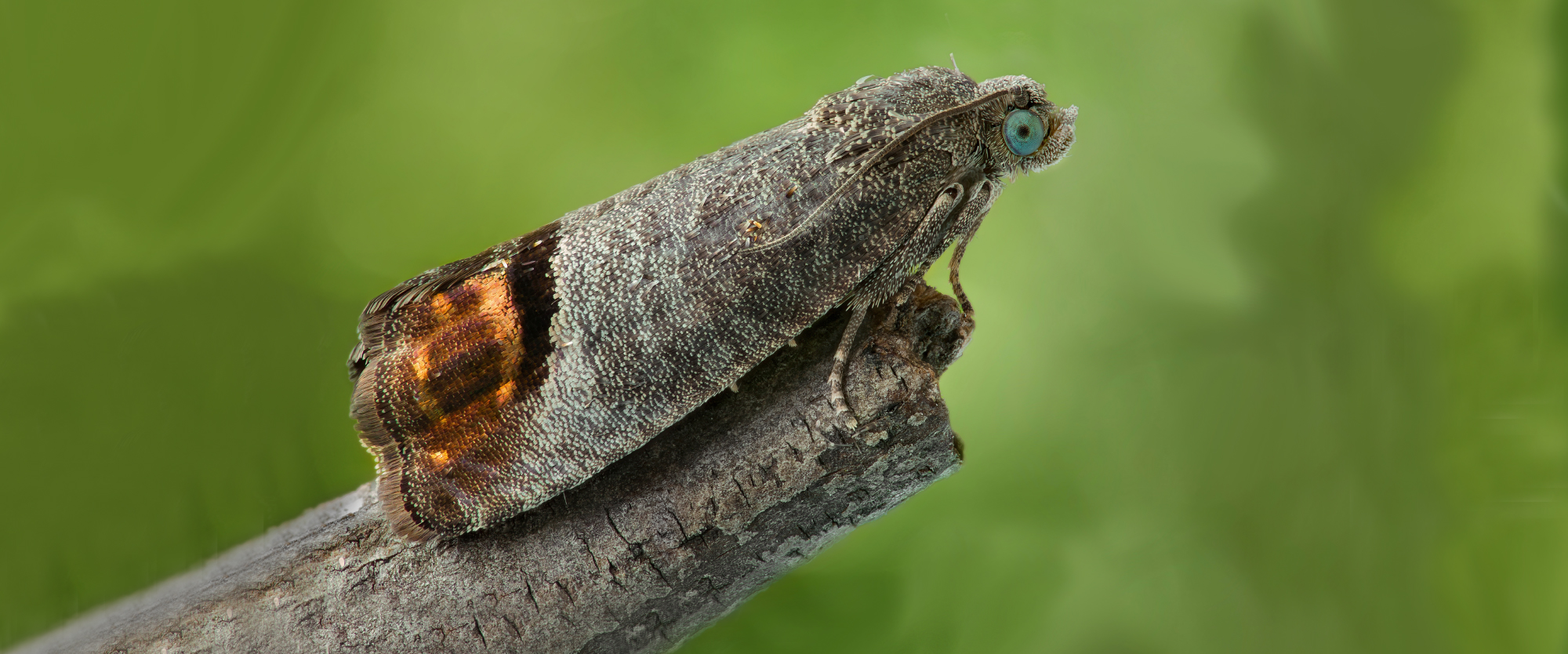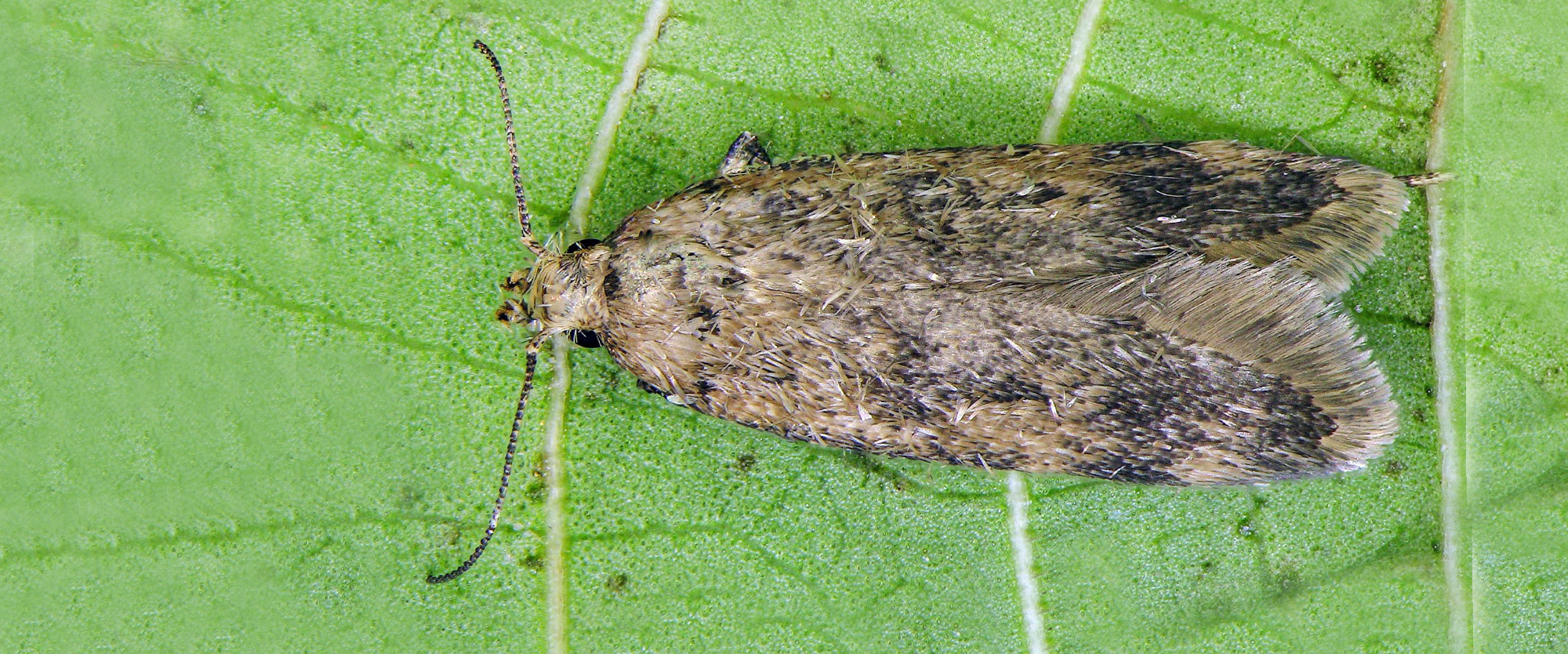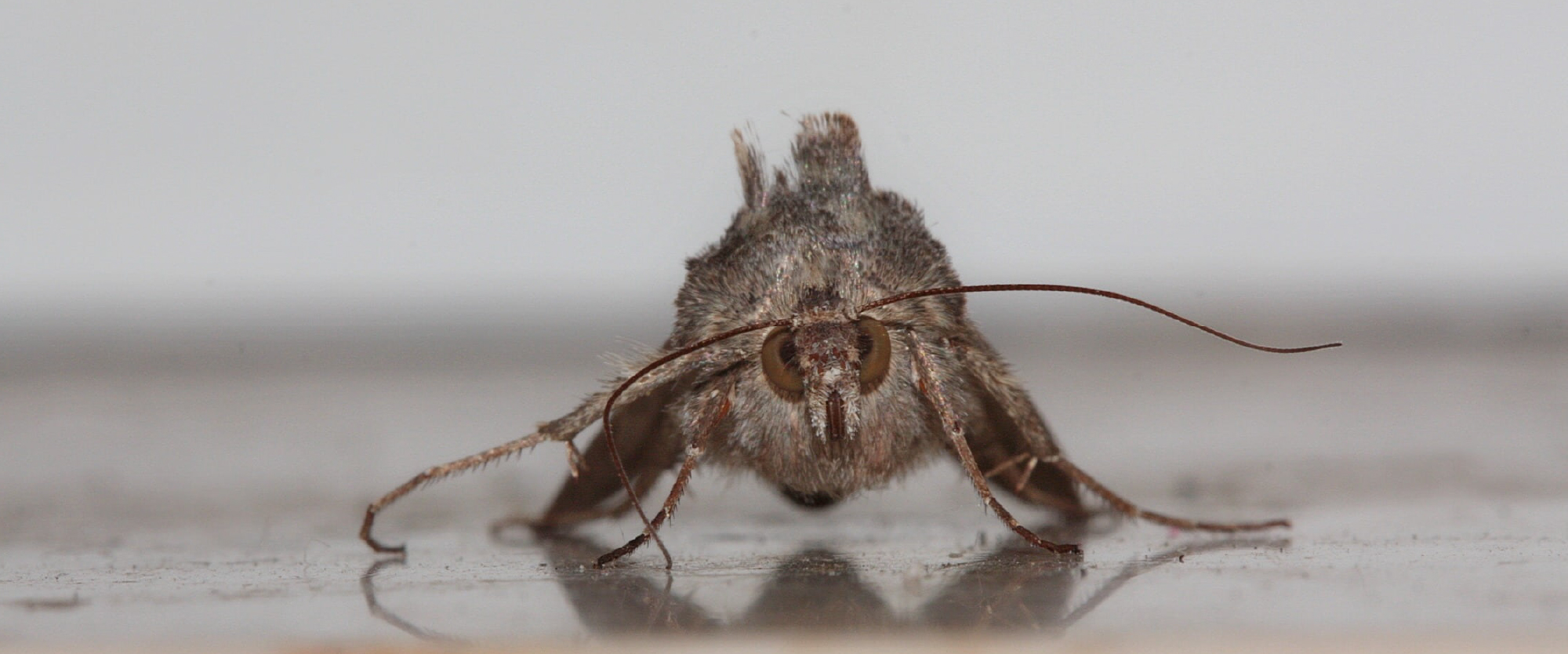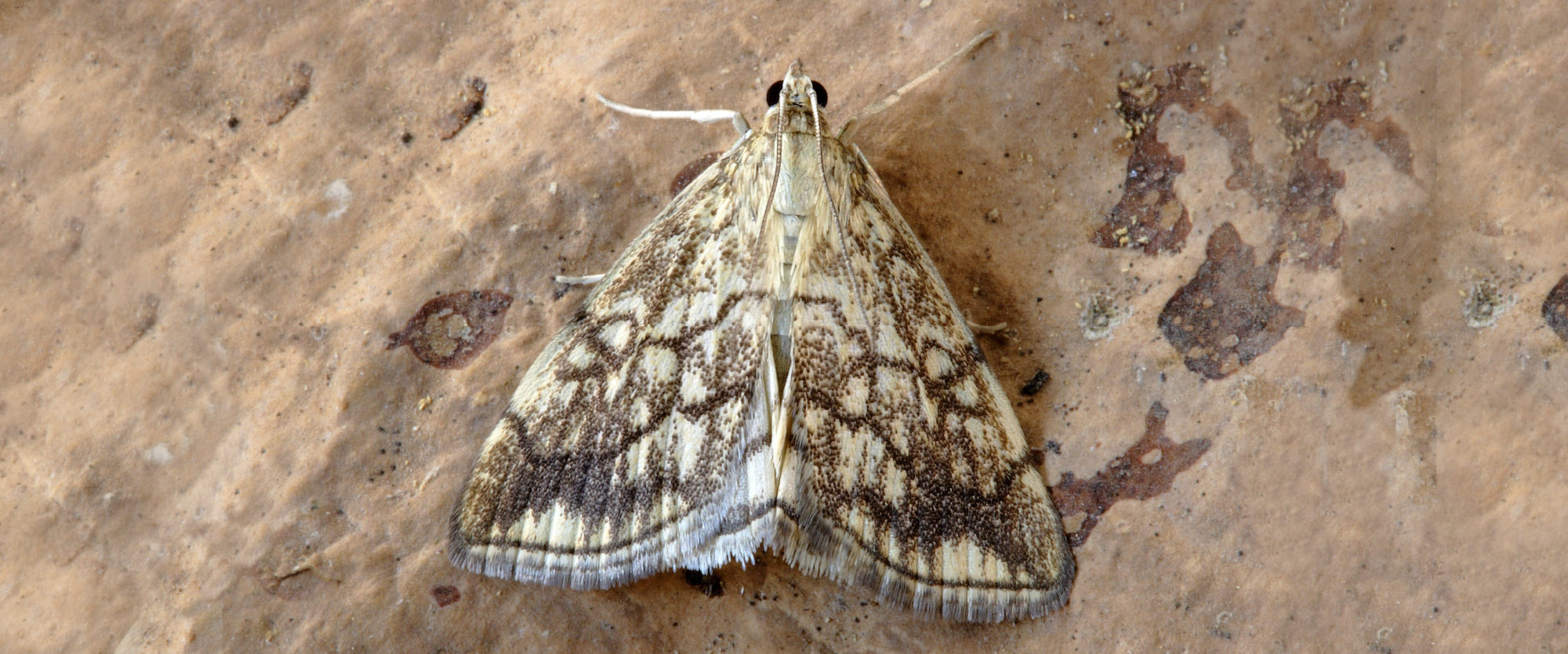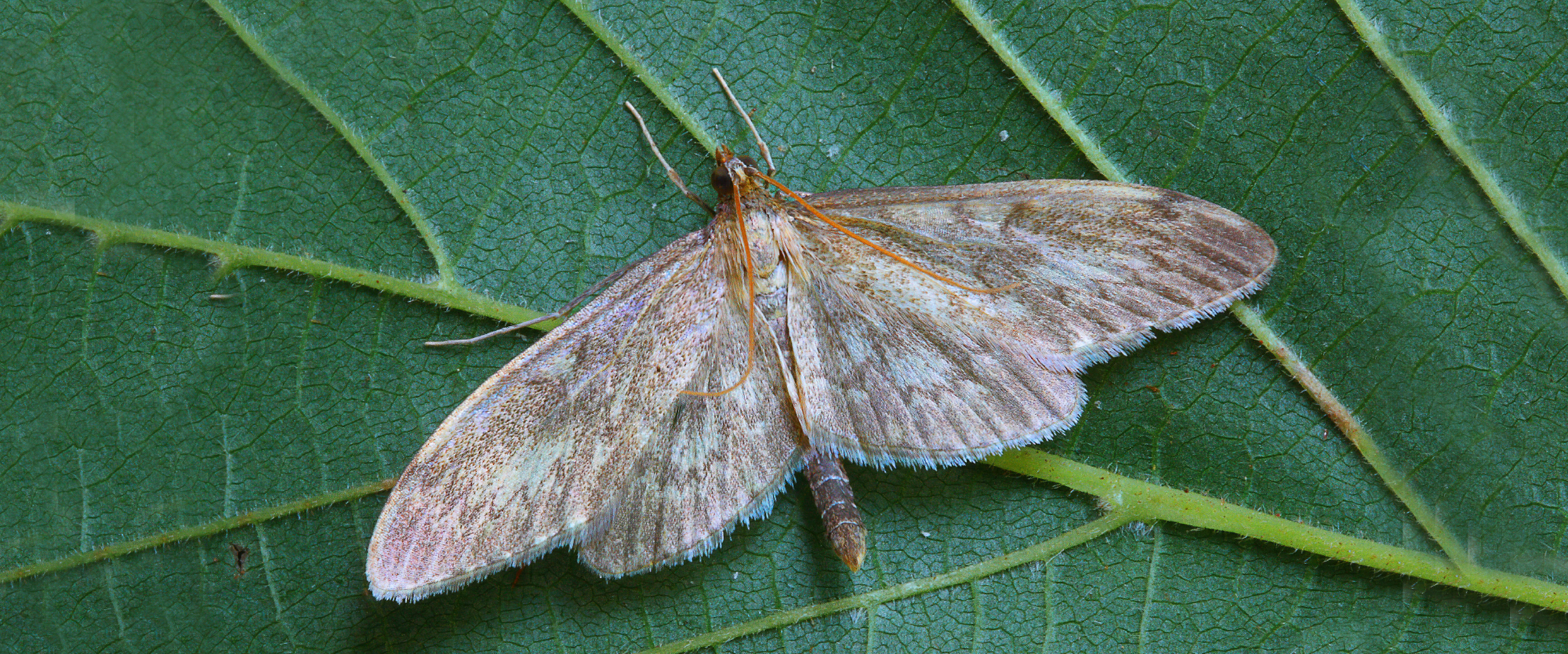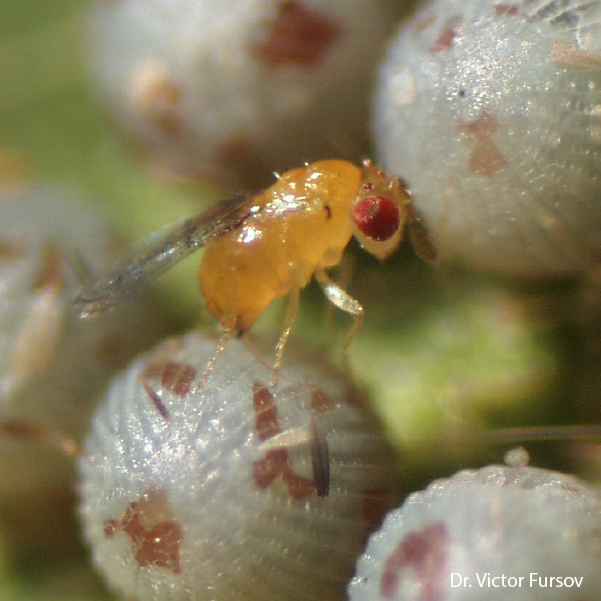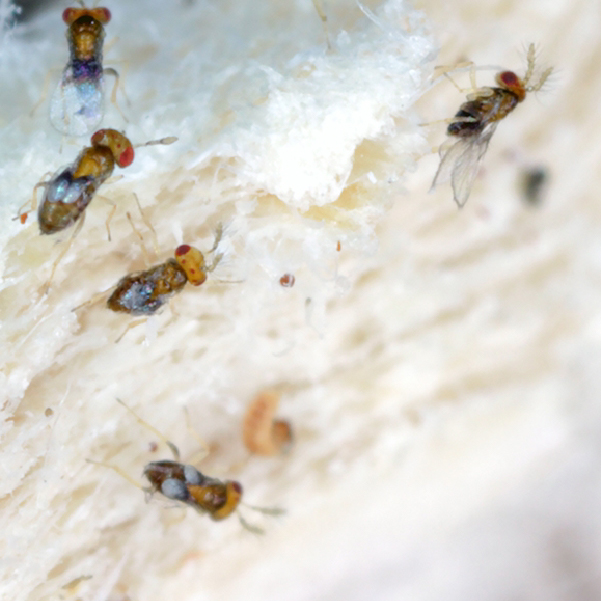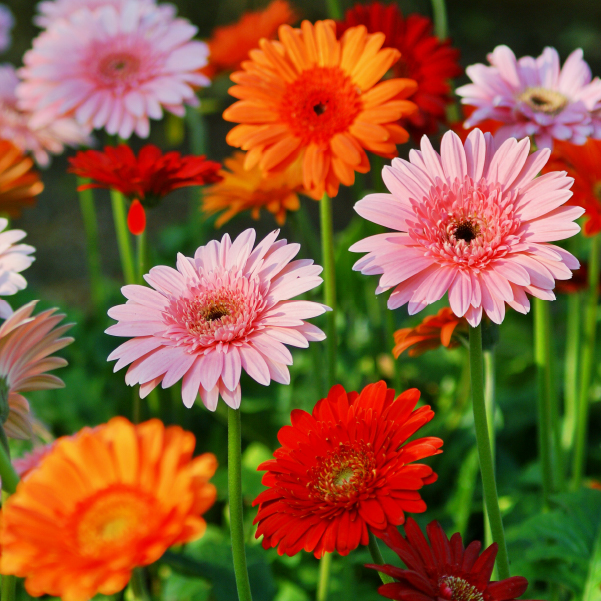Leafrollers are the larvae of some tortricid moths, with bodies ranging in color from green to brown. The larvae feed and pupate within rolled-up leaves of the host plant which are tied with silk threads to provide protection. Many of the moth species adults are drab and have mottled and marbled brown colors. Several species cause problems on ornamental and fruit trees. Examples include the obliquebanded leafroller (Choristoneura rosaceana), the omnivorous leafroller (Platynota stultana) and the codling moth (Cydia pomonella) which can be important pests of fruit trees.
Damage
Leafroller larvae attack tender new leaves, producing a ragged appearance. When many nests are present, they can partially or fully defoliate trees. Leafrollers may also feed on fruits, causing scarring and deformation.
Natural Enemies
There are natural enemies of the leafrollers.
For more information contact your local BioBee field agent.
